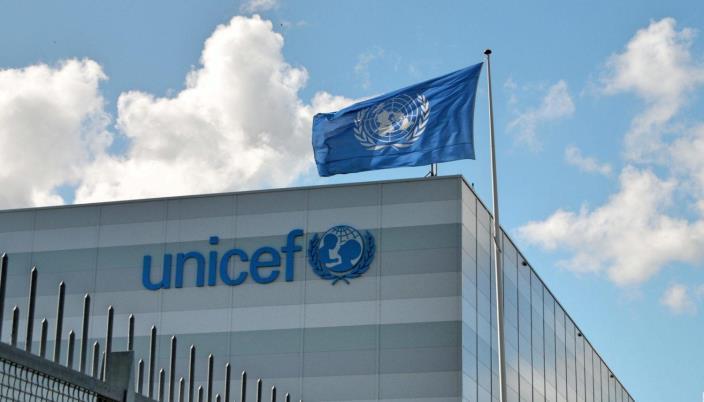UNICEF enrols 33,532 out-of-school children on digital learning in Borno
The United Nations Children’s Fund (UNICEF) on Saturday said it has enrolled 33,532 out-of-school children, including Tsangaya students, in Borno State on the Nigeria Learning Passport (digital learning platform) within ten months.
Speaking at the annual quiz competition organised for school children supported through the NLP intervention in Maiduguri, Tina Atiya Charles, Education Officer, UNICEF Maiduguri Field Office, said 425 teachers and facilitators were trained in blended learning methodologies to teach the enrolled children.
According to her, the Nigeria Learning Passport is a digital platform offering free, localised educational content accessible via the web and mobile devices.
“It features digital learning records and data analytics, and has been launched in 21 states, reaching over 800,000 users—including 230,000 students.
“One of the success story we recorded in Borno is the enrollment drive of Tsangaya students into this digital learning,” she said.
Charles emphasised that “In Borno State, 33,532 learners have been enrolled this year and have completed at least one course on the platform. 425 teachers and facilitators have been trained on blended learning teaching methodology and community meet up meetings to promote parent by-in and to support their children learning.”
She explained that the platform provided more than 17,000 teaching and learning materials aligned with the Nigeria national curriculum and global supplementary resources.
“With over 30,000 teachers in 21 states trained in digital literacy, pedagogy and blended learning teaching methodology. The platform can be used by Learners, Teachers, Educators, Parents/caregivers,” she added.
She, however noted that the initiative is part of UNICEF’s strategy to reduce the number of out-of-school children in the state.
“UNICEF together with the government is working very hard to reduce out-of-school children and ensure they are enrolled back to school, and one of the model is the use of Nigeria Learning Passport.
“One thing that is visible for us and that we identified as a major success is the fact that we are able to bring in the Tsangaya school learners” she stated.
She appreciated the Borno state government and other partners for supporting the initiative with resources that enabled its success.
She said “on behalf of UNICEF, I would like to express our deep appreciation to the Borno State Government for their outstanding support and collaboration in rolling out the Nigeria Learning Passport (NLP).
Read also: UNICEF urges state govts to take ownership of its interventions
“We thank our partners for making this possible. With support from donors like Airtel, SILSA, SONY, and FCDO, UNICEF has provided 270 Samsung tablets, 30 routers, and projectors to schools, with 10 offline devices that were installed in areas without or having limited connectivity.
“We also acknowledge our CSO partners, Innovation Hub and Multi-Aid and Charity Initiative (MACI), and Mercy Eleos Frontida Foundation (MEFF) for their dedication to implementing the NLP and ensuring children have continued access to learning,” she added.
Charles urged the beneficiaries to take advantage of the opportunity by improving their digital skills.
“I encourage you to keep learning and building your digital skills, as these are essential for the future. To parents and teachers, we appreciate your ongoing support in helping young people continue their education” she concluded.

